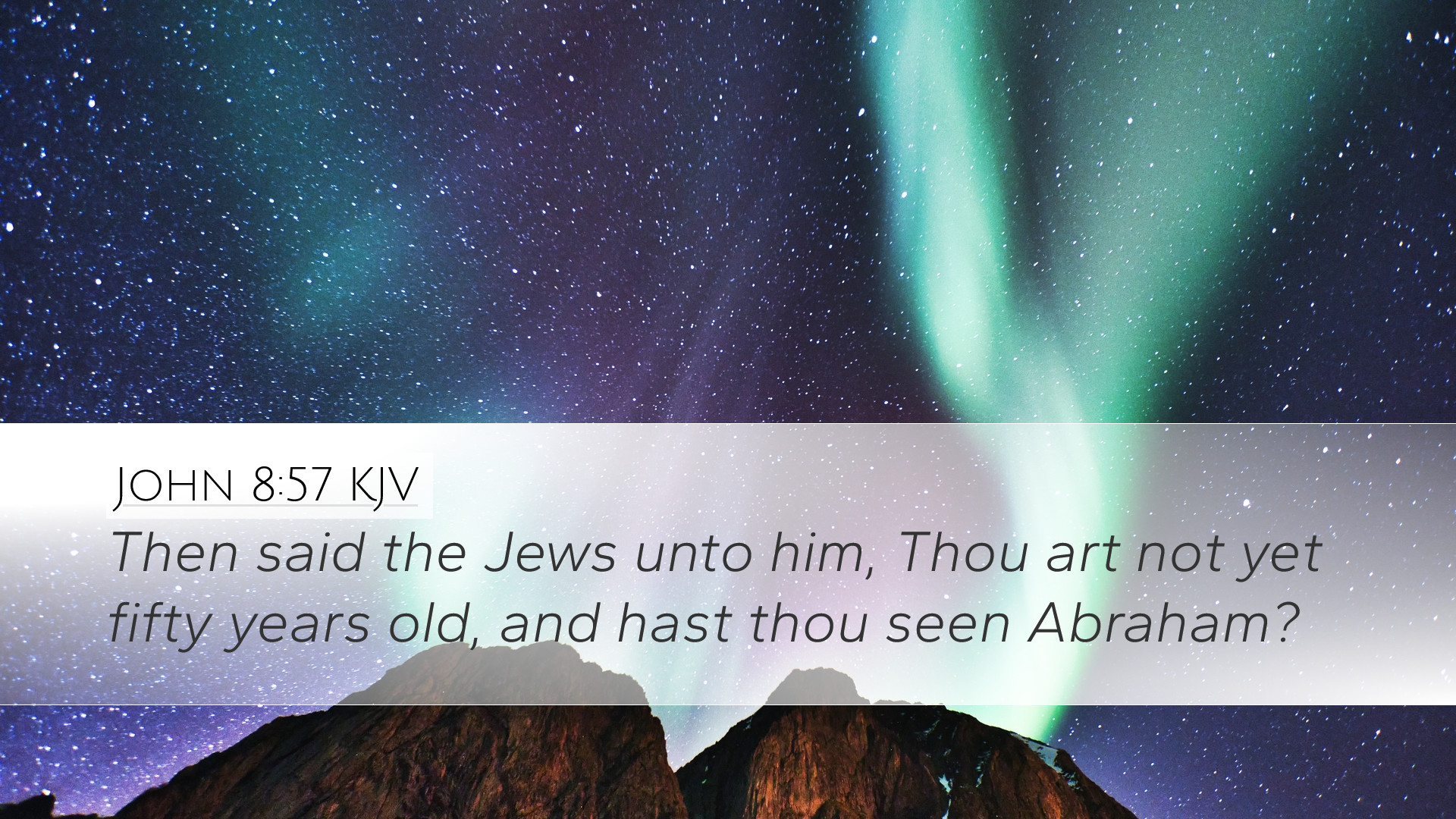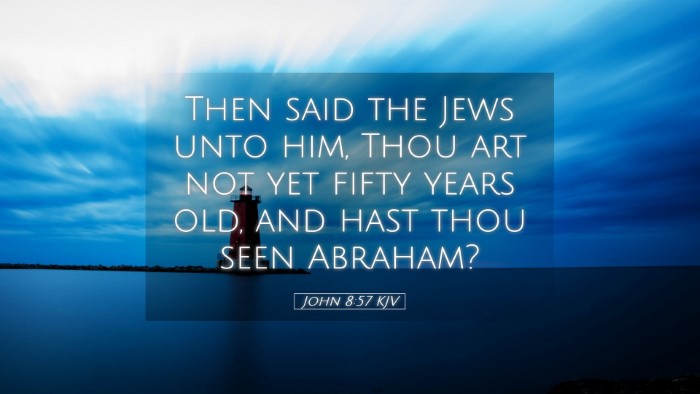Commentary on John 8:57
Verse: "Then said the Jews unto him, Thou art not yet fifty years old, and hast thou seen Abraham?" (John 8:57)
Introduction
This verse serves as part of a larger dialogue between Jesus and the Jewish leaders. It highlights the confrontation of Jesus' claims about His identity and existence before Abraham. Through a synthesis of public domain commentaries, we explore the theological implications, historical context, and the responses from noted commentators.
Theological Insights
Jesus's assertion of having seen Abraham was a striking claim that challenged the understanding of His contemporaries. The Jews' response indicates their incredulity at Jesus's claims of eternal existence. This is significant as it underscores the tensions between Jesus and the religious leaders of the time.
Matthew Henry's Perspective
Matthew Henry notes that the disbelief of the Jews reveals their ignorance of Christ’s true nature. He comments that this exchange emphasizes the difference between physical age and spiritual existence. Henry asserts that Abraham, revered for his faith, recognized Christ’s importance, yet the Jews lacked this insight.
Albert Barnes's Commentary
Albert Barnes elaborates that the Jews mentioned Abraham to highlight their lineage and heritage, asserting their authority based on their descent from him. He views their question as a challenge to Jesus’s credibility, given His relatively young age, which they misinterpret as a lack of wisdom and experience.
Adam Clarke's Analysis
Adam Clarke emphasizes the misunderstandings of the Jews who fail to grasp the nature of eternity. He suggests that the age reference (not yet fifty years) indicates their literal, earthly understanding, which was at odds with the divine revelation Jesus brought forward. Clarke points out that such direct confrontation with Jesus is critical for understanding the rejection He faced.
Historical Context
This verse must be understood against the backdrop of Jewish traditions and the role of Abraham as a patriarch. The Jews often held Abraham in high esteem, viewing him as a model of faithfulness. This connection is leveraged by Jesus in earlier chapters but is now challenged by His provocative declaration.
- Patriarchal Significance: Abraham is a central figure in Jewish identity.
- Messianic Expectations: The Jews awaited a Messiah, but their expectations were shaped by a misunderstanding of scriptural prophecies.
- Jesus's Claims of Divinity: The idea of pre-existence introduces a foundational Christian doctrine concerning Christ's divinity.
Implications for Theology
This interaction becomes a pivotal moment showcasing the misunderstanding between the divine nature of Jesus and the human concept of time and existence. Commentators suggest the necessity for theological clarity regarding who Jesus is in relation to eternal truths.
Christology
Understanding Jesus as both fully God and fully man is crucial. John 8:57 lays the groundwork for unpacking His pre-existence and eternal nature as God incarnate. Both Henry and Clarke emphasize that knowing Jesus transcends historical timelines and delves into the realm of divine truth.
The Nature of Faith
Henry and Clarke call attention to faith as a means of recognizing the truth of Jesus’s identity. The dialogue serves not only as a dispute but as an illustration of the faith journey, inviting believers into deeper contemplation of their understanding of Christ.
Conclusion
This brief but profound verse encapsulates the friction between Jesus and the Jewish leaders regarding identity and existence. It invites ongoing reflection on the nature of faith, the character of Jesus, and the importance of recognizing Him beyond mere historical figures. Through this commentary, we not only see the conflict but also an invitation to a greater understanding of spiritual truths heralded by the lens of faith.


